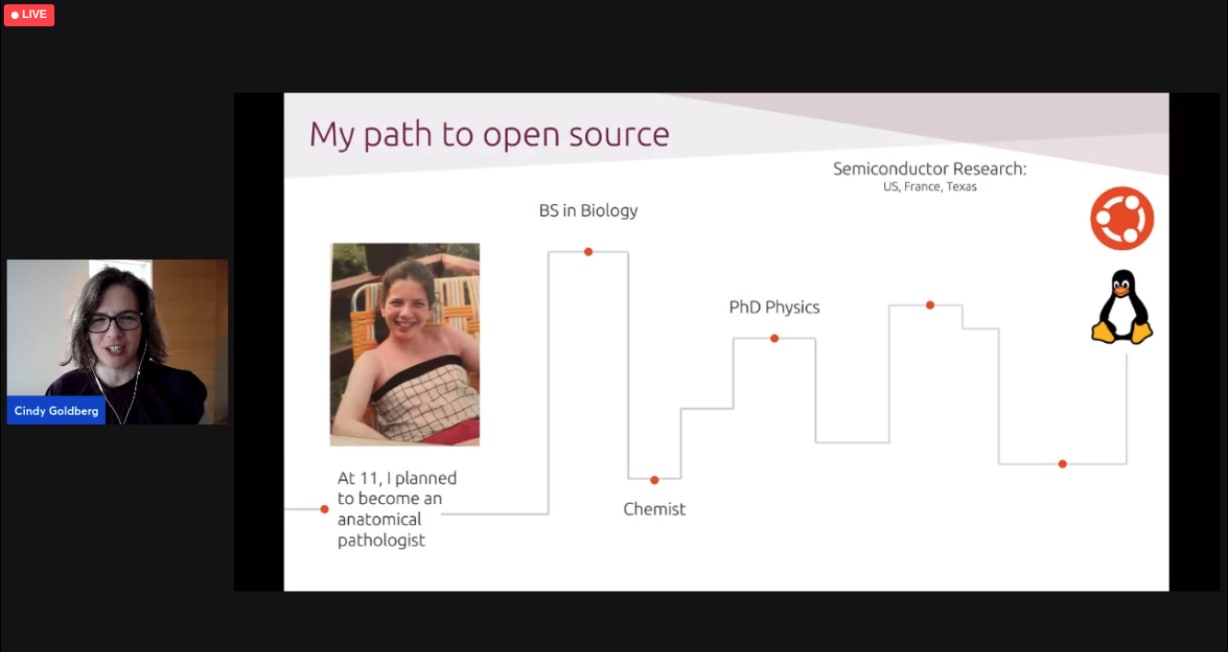Canonical
on 24 May 2023
From 9 to 12 May this year, people from 165 countries gathered virtually for the Women in Tech Global Conference. The conference is the flagship event of the WomenTech Network, a community for women in tech worldwide. Canonical was a gold event sponsor, and several team members participated as keynote speakers, networking hosts and attendees.
When looking at the agenda in the weeks leading up to the conference, the number of speakers and sessions listed already hinted at the appetite for networking with a community of women, underrepresented groups and their allies in tech, science and engineering. A spirit of collaboration was palpable throughout the event, with close to 12,500 attendees participating across time zones. Participants’ willingness to share lessons learned and mistakes made gave many presentations a refreshing sense of authenticity.
In her keynote session, Cindy Goldberg, Canonical’s VP of Silicon Alliances, focused on open source – how it has inspired a global community of innovators and set the pace of rapid technological advancement. She shared her path to open source, from early studies and roles in biology and chemistry to a PhD in physics, followed by leadership roles in AI and semiconductor research. Cindy highlighted that partnerships and community were always at the centre of the most impactful innovations throughout her career: the most significant technical breakthroughs occurred when diverse and complex partnerships were formed around shared challenges. This is a powerful message. As she pointed out, collaboration is not always easy. In the open source world, for example, creating a new app or program is often straightforward. But that new app can have a complex dependency tree touching hundreds of software packages that must be maintained and secured. A web of dependencies turns securing a relatively simple app into a complex project. For Cindy, this is precisely where the next breakthrough in open source software is happening: partnering to secure open source.

Watch Cindy Goldberg’s session here.
Attendees also got the chance to meet with some of Canonical’s very own Miona Aleksic(Product Manager), Lidia Puerta(Senior User Researcher), Andreea Munteanu(Product Manager), Varshi Gupta(Engineering Director). From onboarding to project collaboration, the Meet and Greet allowed for Q&A and more!

Watch the Meet & Greet session with Canonical’s team here.



